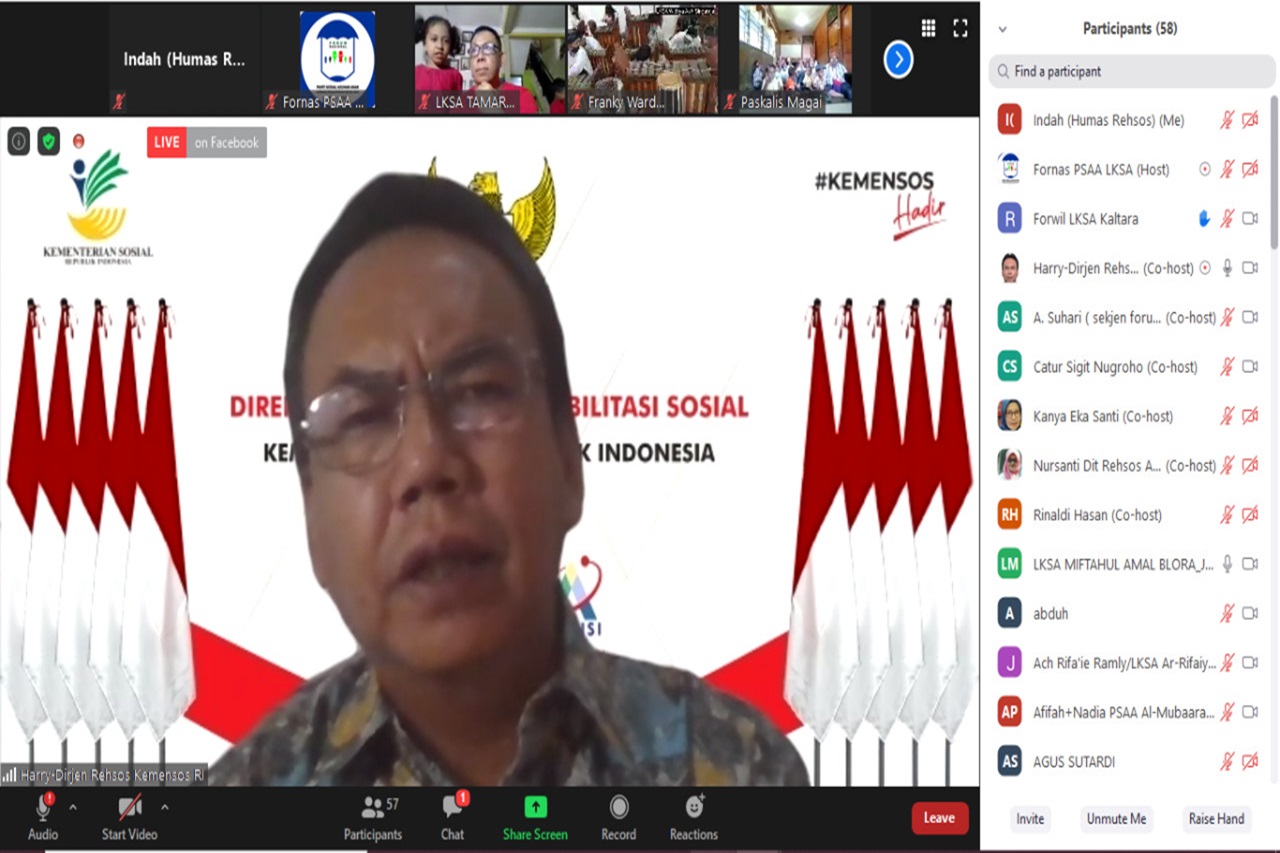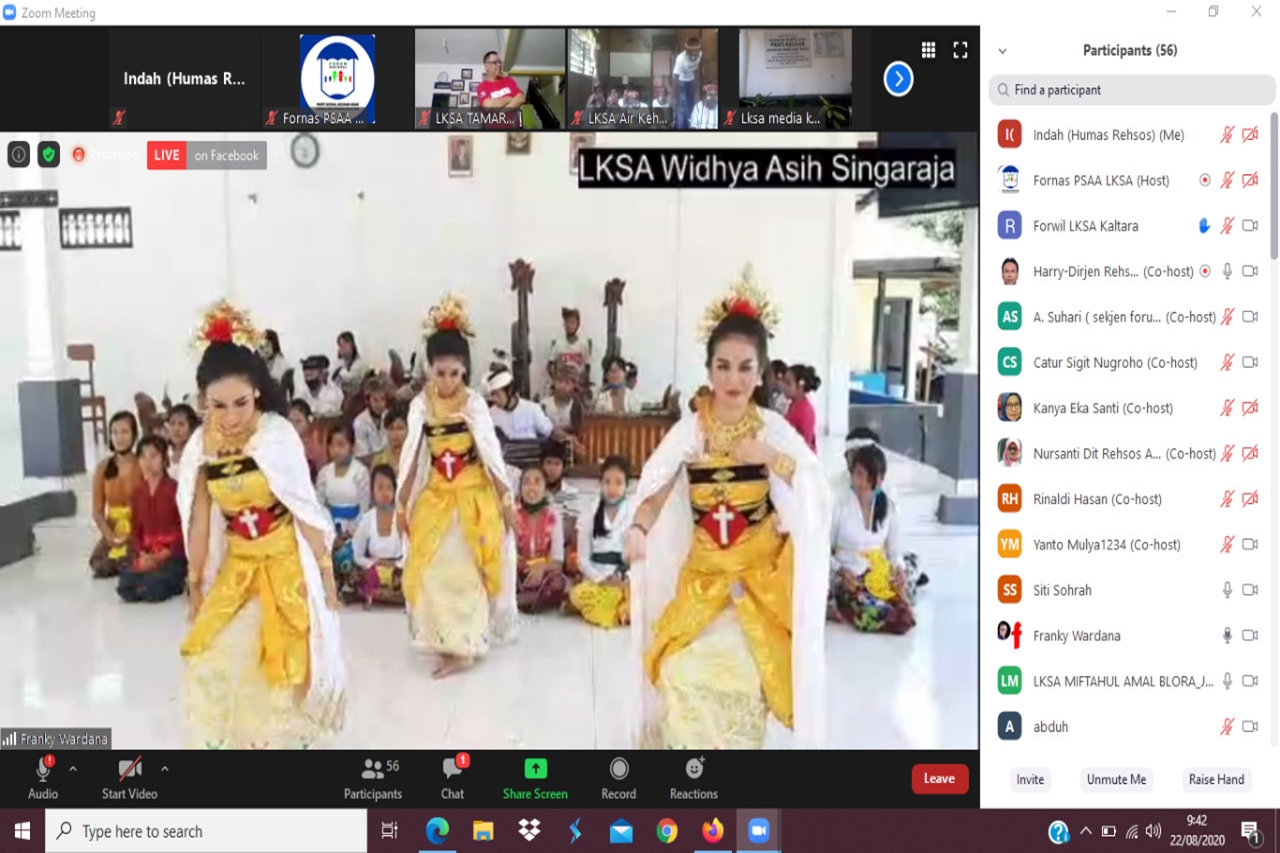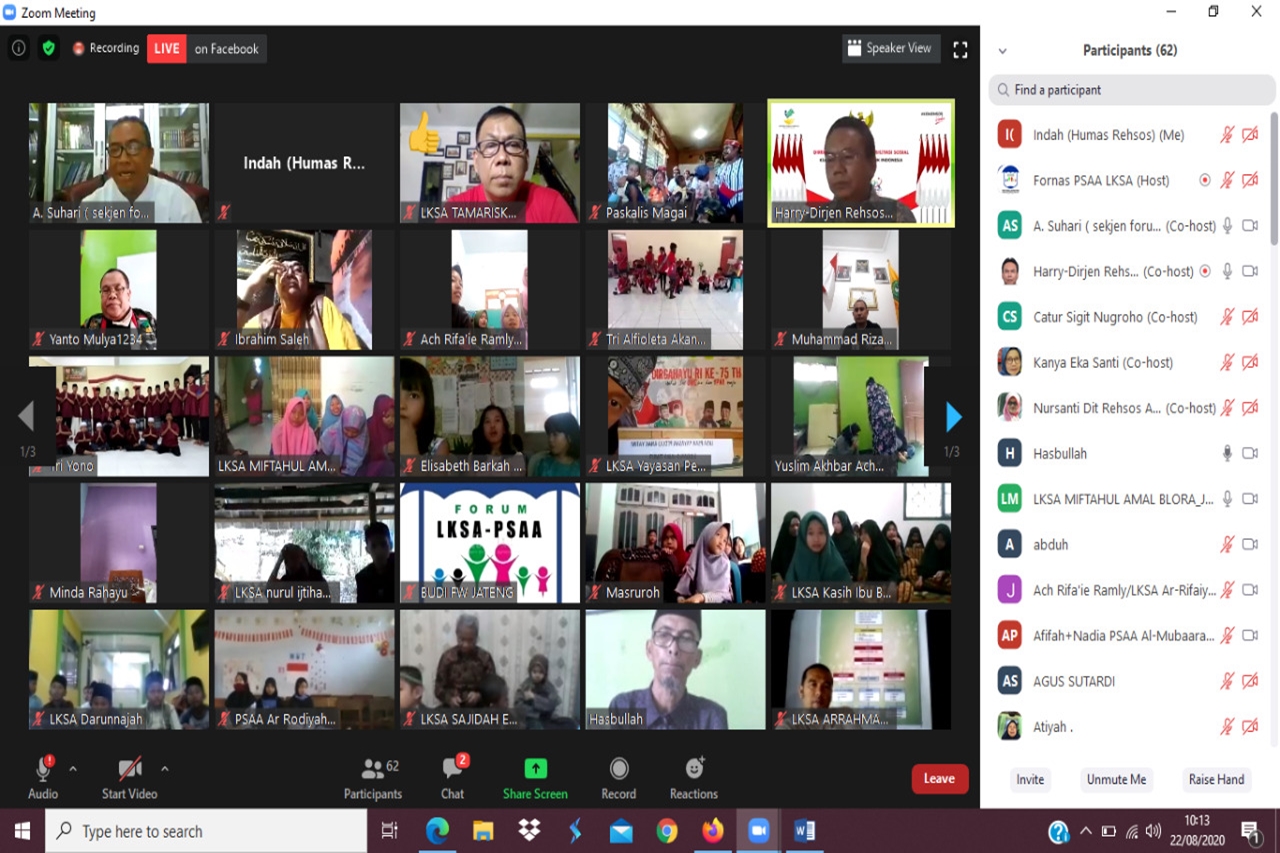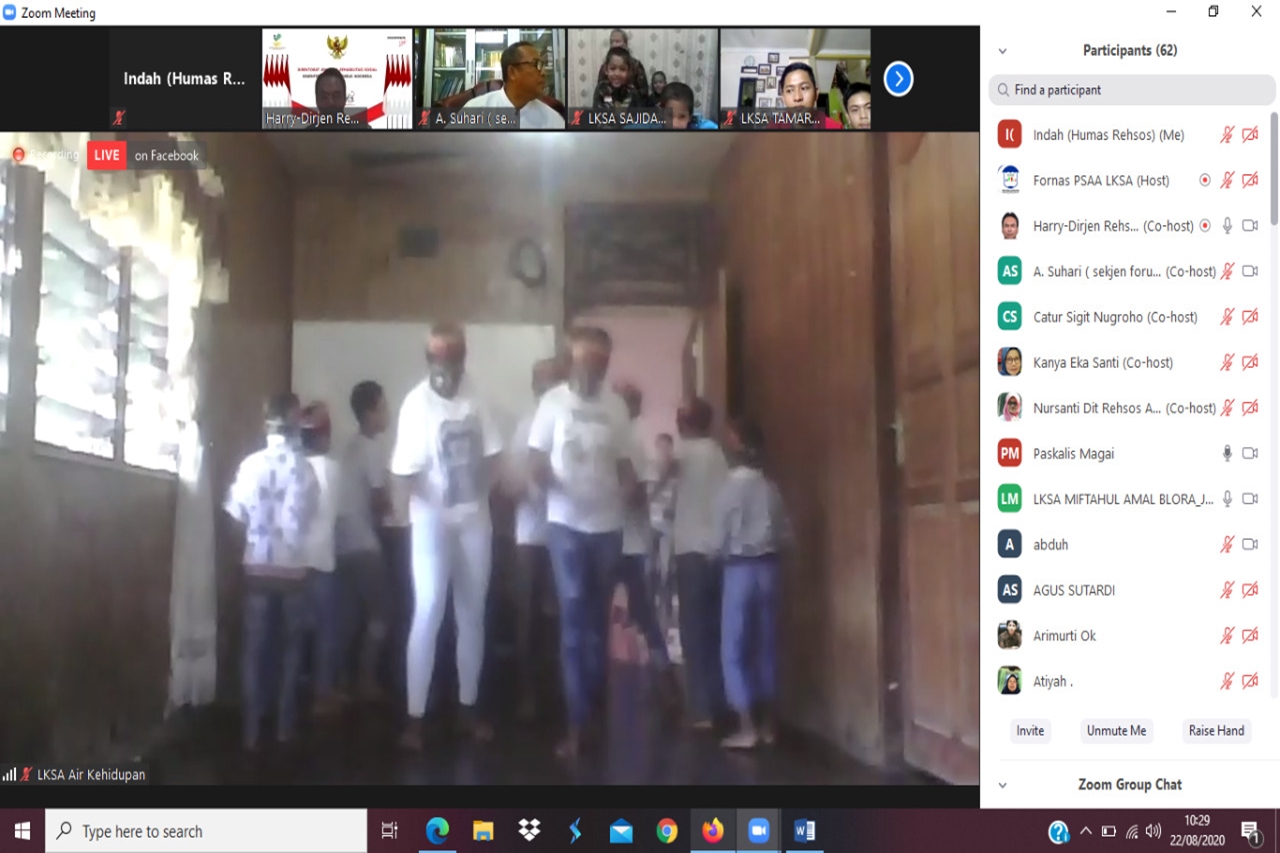JAKARTA (22 August 2020) - The Indonesian Ministry of Social Affairs through the Directorate General of Social Rehabilitation is optimistic that the presence of the Child Orphanage - Child Welfare Institution (PSAA-LKSA) is able to play an active role in protecting Indonesian children.
This was stated by the Director General of Social Rehabilitation, Harry Hikmat at the 75th Anniversary of the Republic of Indonesia together with PSAA-LKSA. The event organized by the PSAA-LKSA National Forum, according to him, is a moment of respect for the struggles of the heroes and at the same time affirming oneself to have commitment and principles.
"I again remind the vision and mission of the PSAA-LKSA national forum which is committed to responding to children's problems, fulfilling children's rights and protecting our children from all forms of neglect, exploitation, violence and discrimination," said the Director General of Social Rehabilitation.
He hopes that the vision and mission will remain imprinted in the hearts of the administrators. He also believes that the mandate carried out by the PSAA-LKSA national forum adheres to the vision and mission.
Children's problems are increasing every year. Especially during this COVID-19 pandemic, it was recorded that 8% of children were exposed to COVID-19, as many as 2% of children lost their parents who were exposed to COVID-19.
Data from the Directorate of Child Social Rehabilitation of the Indonesian Ministry of Social Affairs stated that as of July 2020 there were 11,796 cases of children who had been handled by the Social Worker Service Unit (Sakti Peksos) with various cases. This condition is of course very worrying.
Children as future successors of the nation experience various problems that cause children to not have their rights fulfilled. "If children have experienced problems from an early age, of course we will be concerned about the future of this nation," said the Director General of Social Rehabilitation.
Therefore, the Ministry of Social Affairs continues to take various steps to change so that the protection of children reaches a wider range. The Ministry of Social Affairs applies a family-based approach, with the hope that families are able to provide the best care for their children.
PSAA-LKSA plays an important role in supporting the growth and development of children in the family. If this can be done, then PSAA-LKSA together with the community have transformed into active care agents. This is what is then called a community-based approach.
The last alternative, the Children's Center belonging to the Ministry of Social Affairs, orphanages, LKSA/PSAA can also provide temporary care services. Then the child needs to be sought to return to the family as soon as possible or get alternative care.
The Director General of Social Rehabilitation also ensures that it will open access for children to other government programs. "We also ensure that children receive government priority programs, such as the Smart Indonesia Card (KIP), Family Hope Program (PKH), Non-Cash Food Assistance (BPNT) and Social Rehabilitation Assistance (ATENSI) which will be massively rolled out throughout Indonesia," he said.
"Therefore, through the spirit of the 75th Indonesian Independence Day, I hope that the PSAA-LKSA national Forum will continue to play an active role as a working partner of the Ministry of Social Affairs in particular and the government in general to build the Nation and State. This is in order to realize the noble ideals of the heroes of independence for the welfare of Indonesian children," he concluded.
This activity was attended by all PSAA-LKSA throughout Indonesia. Several children at PSAA-LKSA demonstrated their skills in the arts, namely dancing, singing, poetry and playing musical instruments. One of the highlights is the Kaimana Seka-seka from LKSA Air Kehidupan of Jayapura City children which tells about togetherness.
The Director General of Social Rehabilitation also had a dialogue with one of the children from LKSA Sebatik who hoped to get an education, the needs of the teachers were met because there were still few teachers who taught and were also provided with adequate learning infrastructure.
 English
English
 Bahasa
Bahasa




